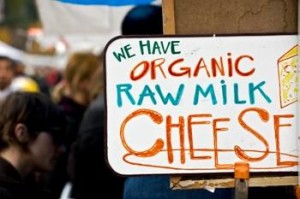I have concerns about indiscriminate use of antibiotics as sub-therapeutics, but they also have a role in reducing disease.
 According to the The Wall Street Journal, the Food and Drug Administration, responding to concerns about antibiotic-resistant bacteria, asked drug and meat companies late last year to end the practice of feeding antibiotics to livestock to speed growth.
According to the The Wall Street Journal, the Food and Drug Administration, responding to concerns about antibiotic-resistant bacteria, asked drug and meat companies late last year to end the practice of feeding antibiotics to livestock to speed growth.
It’s a standard argument regarding agricultural technologies for the few to speak on behalf of the many to promote an agenda, often more political than scientific, and say, we’re just doing what consumers want.
More like the Potomac two-step, that does little to actually make fewer people barf from the food they eat.

